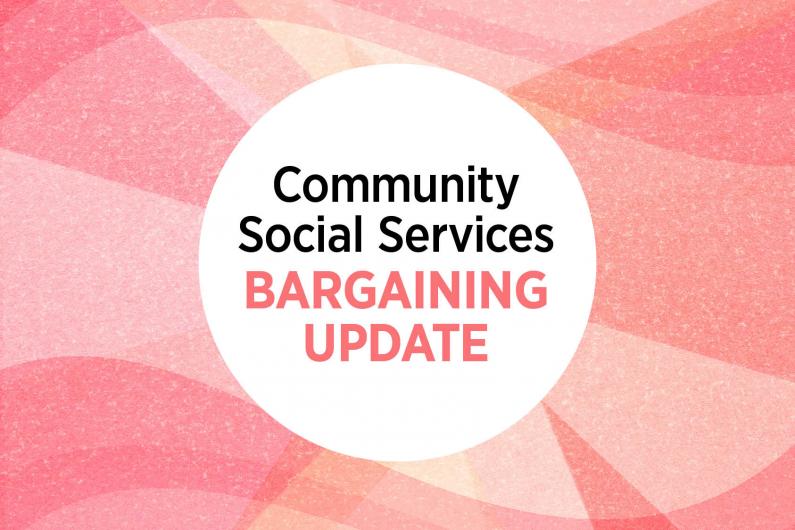
The nine-union Community Social Services Bargaining Association (CSSBA) was back at the table during the first two weeks of August for further discussions with the Community Social Services Employers Association (CSSEA).
Since bargaining began in February, the CSS Bargaining Committee has pushed for the shared priorities that members from all unions had identified in the sector. Those priorities include a fair and equitable compensation package, health and safety improvements in the workplace, mental health supports for all workers, and meaningful and tangible recognition and reconciliation for all Indigenous workers.
After months of discussions, progress has been made with agreements on non-monetary priorities and language improvements to the CSS collective agreement.
Last week, the two parties began more in-depth discussions on monetary priorities. Unfortunately, at this point in the process, the parties continue to be far apart in their positions.
The bargaining committee is not prepared to accept any offer that does not include a compensation package that recognizes the value of CSS workers and protects against rising costs.
Essential Services discussions are ongoing
CSS workers are the glue that holds our communities together. For too long, many CSS members have subsidized the province’s social safety net with their own compensation, mental health, and time spent away from families and friends. Now, the community social services sector is at a crisis point with staff shortages, high turnover, and increased medical leaves.
The bargaining committee has been hard at work for many months to make the gains that members have identified and need. And if they are not able to continue to do that at the bargaining table, job action may be needed, as a last resort.
Essential service discussions with employers started in July and are in progress.
Determining essential service levels is a legal process that is a normal part of bargaining. It prepares members for every scenario, including if job action becomes necessary. Essential service levels for each workplace identifies what work needs to be done to keep workers and the people they care for safe. It is different than when the provincial government determined what jobs were essential during the COVID-19 pandemic.
If there is an essential service order from the Labour Board for the program that you are working in or the service that you provide, HEU will ensure that the levels are met.
The bargaining committee is still in active negotiations with the employers’ representatives. The goal is to negotiate a fair agreement with appropriate compensation while doing the best to minimize impact on workers and the community. But we need to be prepared for all possible scenarios, including the ability to apply pressure through various forms of job action.
Next steps
The next round of negotiations are scheduled in September. If the bargaining committee is not able to get the best possible agreement for CSS members, then they will come back to members for guidance on next steps. There are various ways that members can stand strong and united, up to and including job action, which will be coordinated by the bargaining committee. Remember, workers cannot be disciplined for participating in any form of job action.
The committee will be thoughtful and strategic and will keep members informed at every step of the way. This agreement belongs to members, so members will have a say as the next steps are taken.
Keep connected
While negotiations are happening, you can help out by making sure that all of your co-workers have their union cards and have updated their contact information. Members can update their info here: https://www.heu.org/change-contact-information
Click to see all Community Social Services bargaining bulletins